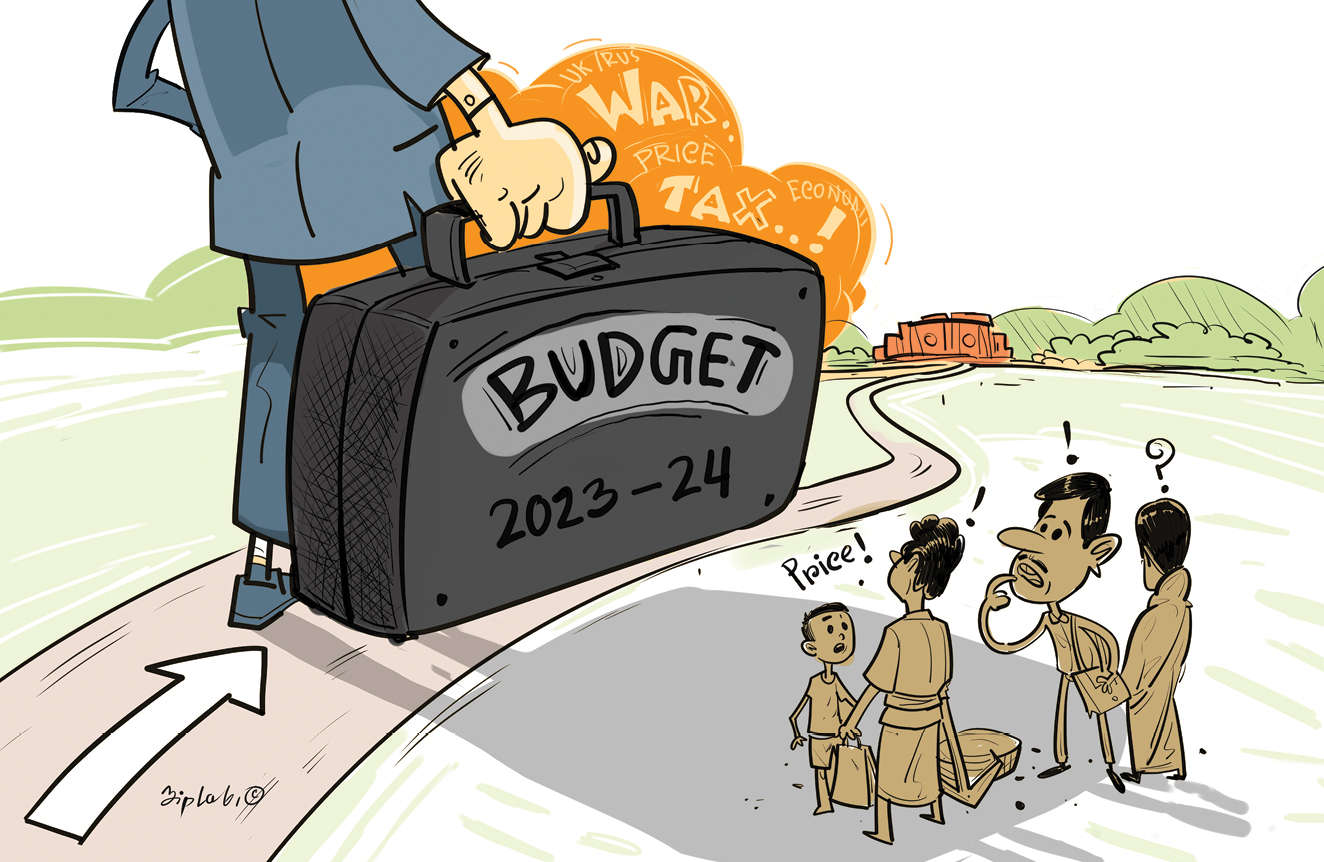Budget Subsidies: Big chunks go to power, fertiliser

The allocation for subsidies in agriculture, food, and power will be raised considerably in the next budget, with an aim to ease inflationary pressure on people.
The subsidies are expected to cushion the blows of high prices of fuel, fertiliser, and food on the global market in the fallout from the Ukraine war, according to finance ministry officials.
The total subsidy allocation will be over Tk 1,10,000 crore in the next fiscal year. In the budget for this fiscal year, it was Tk 81,000 crore, which is likely to be revised to Tk 94,000 crore.
Subsidy in fertiliser has been increased gradually over the last few fiscal years to support farmers but now the prices of the agricultural inputs have risen in the international market and the weak Taka has made things worse.
The subsidy in fertiliser will be around Tk 24,000 crore in the next budget, up from Tk 16,000 crore in the original budget for the current fiscal year, said an official.
The government later increased the subsidy to Tk 26,000 crore in the revised budget for this fiscal year.
In the next budget, subsidy on food will be increased by Tk 800 crore to Tk 6,766 crore.
And the subsidy on power will be around Tk 26,000 crore, which was Tk 17,000 crore in the outgoing fiscal year, added the official.
Zahid Hussain, former lead economist at the World Bank, said the government hiked power tariff but it is still paying capacity charges to power plants. The allocation might not be enough.
The economy would not benefit if the load-shedding persists, he pointed out.
Planning Minister MA Mannan said there are two types of subsidies, "One is bad, and the other is good.
"We will not give subsidy to people who stay in air-conditioned rooms and travel by car. We will gradually reduce the bad subsidies and continue subsidising agriculture and food."
If you suddenly remove the subsidy in an election year, there will be a huge impact
State Minister for Power, Energy and Mineral Resources Nasrul Hamid yesterday said the government will not withdraw all subsidies from the power and energy sector in the next budget
"If you suddenly remove the subsidy in an election year, there will be a huge impact," he said at a pre-budget dialogue organised by Forum for Energy Reporters Bangladesh at the Bidyut Bhaban.
Incentives (considered as subsidy) for remittance and export will not be enhanced in the next fiscal year since growth has been sluggish in the two sectors.
Finance ministry officials said bearing in mind the uncertainty in the global economy, the allocation for remittance and export incentives will be kept the same as the outgoing fiscal year.
The government kept aside Tk 9,025 crore as incentives for exports in the current fiscal year since there was a 34-percent growth in exports in the previous fiscal year.
But exports grew only 5.38 percent between last July and April this year. Not only that, in April, exports dropped by 16.52 percent year-on-year, according to Bangladesh Bank data.
A finance ministry official said more allocation can be made for export incentives in the revised budget for the next fiscal year if exports pick up.
Another official said incentives should be given to those who are exporting new and diversified products and exploring new markets.
Allocation for incentives in remittance will remain the same -- Tk 6,200 crore -- in the next fiscal year.
Remittance inflow has grown only 2.37 percent between last July and April this year despite growth in manpower exports. In April, remittance dropped by 16.28 percent year-on-year, according to the central bank.
Over the 16 months ending in April, Bangladesh sent 15 lakh workers abroad, according to the Bureau of Manpower, Employment and Training.
Zahid Hussain said the exchange rate policy of the government is one of the reasons for the low growth in remittance.
He said expatriate Bangladeshis are getting better exchange rates through unofficial channels compared to the formal channel.
"The remittance inflow will remain the same if the government does not change the exchange rate policy," he told The Daily Star.
Even after hiking gas prices for commercial consumers, around Tk 6,000 crore will be kept aside as subsidy for gas users in the next budget.
In January, the government increased gas prices, between 14 percent and 179 percent, for commercial users to shed some subsidy burden.
The price of cooking gas supplied to homes via pipelines was not hiked in January.
The officials said there would be no subsidy on petroleum products as the government plans to introduce a new pricing system from this September in line with IMF's $4.7 billion loan programme recommendations.




 For all latest news, follow The Daily Star's Google News channel.
For all latest news, follow The Daily Star's Google News channel. 

Comments